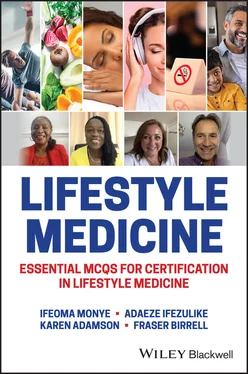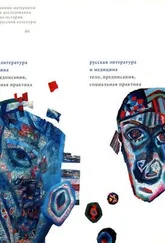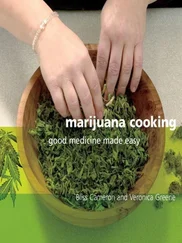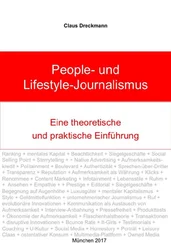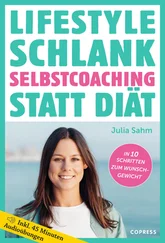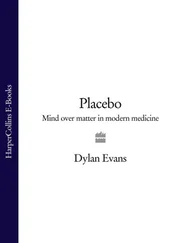7 D The main pillars of Lifestyle Medicine include Nutrition, Physical Activity, Sleep, Stress Management, Avoidance of Tobacco, Alcohol, and other harmful substances’ Use, Social Connectedness, and Positive Psychology. Behavioural change is the mainstay of management. Nutrition needs to be plant‐based and does not need to follow any particular named diet such as Mediterranean, Atkins, Paleo’s, etc. Emotional wellness is a key component in the practice of Lifestyle Medicine (Rippe 2019, p. 964).
8 A Lifestyle Medicine places emphasis on behavioural change. This is the most distinctive aspect of the principles and practice of Lifestyle Medicine.Behaviour change is the foundational activity through which Lifestyle Medicine works. Lifestyle Medicine often needs a multi‐professional team, but behavioural change is the distinction from other specialities. All team members are equally important in the management of the patient (Rippe 2019, p. 193).
9 B A typical setting for a Lifestyle Medicine Clinic could be in a Primary, Secondary, or Tertiary clinic that incorporates the typical one‐to‐one consultation and group consultations in the management of patients. The practice of Lifestyle Medicine does not require a super‐specialist diagnostic centre, nor is it typically a tertiary consultant‐delivered service. Lifestyle Medicine involves significant evidence‐based changes in behaviours that affect health by a multidisciplinary team whose members have themselves adopted healthy lifestyles (Rippe 2019, p. 967).
10 C According to Noffsinger, 2012, shared medical appointments are ‘conservative individual medical visits in a supportive group setting where all can listen, interact, and learn’. These have been used as an adjunct clinical approach in several countries (Noffsinger 2012; Egger et al. 2015). They provide more time with the doctor, faster access to care, increased peer support, and greater opportunity for self‐management (Egger et al. 2017, p. 58).
11 B The strongest and most compelling evidence is effectiveness of intensive therapeutic lifestyle change treatment (ITLC) because it produces the most dramatic treatment effects, just as higher dosing of pharmacological agents does. Conversely, few studies have been carried out on non‐intensive lifestyle change programs. Their effectiveness is presumed based on published intensive therapeutic lifestyle change studies (Rippe 2019, p. 1019).
12 A Lifestyle Medicine is a distinct field of Medicine aimed at ‘treating the cause’ of most of our modern diseases with the strongest evidence‐based modalities available. Since most modern diseases are caused by lifestyle, it stands to reason that lifestyle changes must be part of the cure. Although portions of Lifestyle Medicine (especially nutrition and physical activity) are included in other fields of medicine, lifestyle change is prescribed as the first‐line and the most important therapy for disease treatment and reversal. Evidence‐based medications and other modalities are used, but only to supplement changes in lifestyle (Kelly and Shull 2019, p. 15).
13 A Lifestyle Medicine is a distinct field of Medicine aimed at treating the root cause of most of our modern diseases. It is evidence‐based and places a lot of emphasis on Behavioural Change. Integrative Medicine addresses the patient’s whole person needs, employing a combination of experience‐based complementary and alternative medicine methods with evidence‐based conventional methods (Kelly and Shull 2019, p. 16).
14 C Functional Medicine focuses on the physiologic and biochemical functions of the body, investigating the balance and processes of cellular metabolism, digestive function, detoxification, and control of oxidative stress (Kelly and Shull 2019, p. 16).
15 D In Conventional Medicine, medications and surgical interventions are often the highest level of care and ‘end’ of treatment. In this disease‐focused approach, patients are the recipients of care, while providers are considered responsible for care and outcomes (Kelly and Shull 2019, p. 16).
16 B Group consultations (the most common model used being Shared Medical Appointments) are fast gaining recognition as a viable adjunct clinical approach in the care of the patient. In the future, they are likely to become a standard procedure in clinical Lifestyle Medicine. Cognitive Behavioural Therapy is commonly used in the treatment protocols in Lifestyle Medicine. Lifestyle Medicine plays an important role in the prevention and treatment of many communicable diseases (Egger et al. 2017, p. 58).
17 D Preventive Medicine includes all aspects of morbidity and mortality prevention for the general public. It emphasizes population‐based interventions that include immunizations, screening, and protection from bioterrorism (Kelly and Shull 2019, p. 16).
18 A Behavioural change is the foundational activity through which Lifestyle Medicine works. Health coaching involves assessing readiness for change, collaboratively establishing client goals, evaluating successful steps and self‐limiting patterns, reassessing and modifying goals, articulating insights gained, and formulating post‐coaching plan to sustain changes that promote health and wellness. The health coach does not change the lifestyle for the client, does not enforce behavioural change, and does not set goals for the client (Rippe 2019, p. 236).
19 B The following is the most appropriate technique in the behaviour change process:In the early stages of change, use motivational interviewingIn the later stages of change, use cognitive behavioural therapy (CBT) techniqueIn all stages, use positive psychology(Kelly and Shull 2019, p. 42)
20 A The field of Lifestyle Medicine envisages a world in which all physicians and allied health professionals have been trained and certified in evidence‐based Lifestyle Medicine, integrating healthful behaviours into their own lives, while incorporating a Lifestyle Medicine‐first approach to treating root causes of lifestyle‐related diseases into their clinical practices. Therefore, ideally, physicians should serve as role‐models in the practice of healthy personal behaviours. Leaders in LSM should promote healthy behaviours as foundational to medical care, disease prevention, and health promotion. Referrals to other specialists are sometimes indicated and must be done in a timely manner. Lifestyle management, helping patients manage and sustain healthy lifestyle practices, is a key competency for the physician in the practice of Lifestyle Medicine (Lianov and Johnson 2010; Tips Box 1.2).
21 D Assessment skills required by a physician in Lifestyle Medicine are varied. Physicians should assess patients and family readiness, willingness, and ability to make health behaviour changes. They should also perform a history and physical examination specific to patients’ lifestyle‐related health status (Kelly and Shull 2019, p. 26).
22 C The patients and their family’s readiness and willingness is what is most required for a successful outcome in health coaching, much more than that of the community, employer, or support group (Kelly and Shull 2019, p. 26).
23 A Lifestyle Medicine treatment intensity has two components, namely intensity of contact hours and degree or extent of lifestyle changes made. Maximally effective intensive therapeutic lifestyle change generally maximizes both components (Rippe 2019, p. 1019).
24 B The intensive therapeutic lifestyle change (ITLC) produces the most dramatic treatment effects, just as higher dosing of pharmacological agents does. The ITLC maximizes Lifestyle Medicine treatment dosing to produce the induction phase needed to transform self‐efficacy and enable the patient to sustain lifestyle change. For a lasting result, it will be preferable if an ITLC intervention is followed by therapeutic lifestyle change (TLC) treatment with the patient’s primary care physician as follow‐up is commonly the weak link that negates a very successful ITLC program (Rippe 2019, p. 1019). TIPS BOX 1.2Lifestyle Medicine Competencies for Primary Care PhysiciansLeadershipPromote healthy behavioursSeek to practice, and create school, work, and home environments supporting, healthy behaviours.KnowledgeShow knowing evidence on certain lifestyle changes improves patients’ health outcomesDescribe ways physicians engage with patients/families can improve health behavioursAssessment SkillsAssess social, psychological, and biological behaviours and resulting health outcomesAssess readiness, willingness, and ability for health behavioural changePerform lifestyle‐specific history and physical examination, including lifestyle “vital signs” (diet, exercise, alcohol, smoking, BMI, sleep, stress, relationships), informing apt testsManagement SkillsUse recognized guidelines (e.g hypertension/quitting smoking) to help patients self‐manage their lifestyles and choices.Establish effective therapeutic relationships effecting and sustaining behaviour change with evidence‐based counselling methods, tools and follow‐up.Collaborate with patients and their families to develop evidence‐based, SMART action plans like lifestyle prescriptions.Help patients manage/sustain healthy lifestyles and refer patients to appropriate healthcare professionals for lifestyle‐related conditionsUse of Office and Community SupportAble to practice as an interdisciplinary healthcare team and support a team approachFoster/use office routines supporting lifestyle medical care e.g decision support toolsSupport quality improvement for lifestyle interventions with dataRefer appropriately in the community to support implementing healthy lifestylesAdapted from Lianov & Johnson, 2010.
Читать дальше
